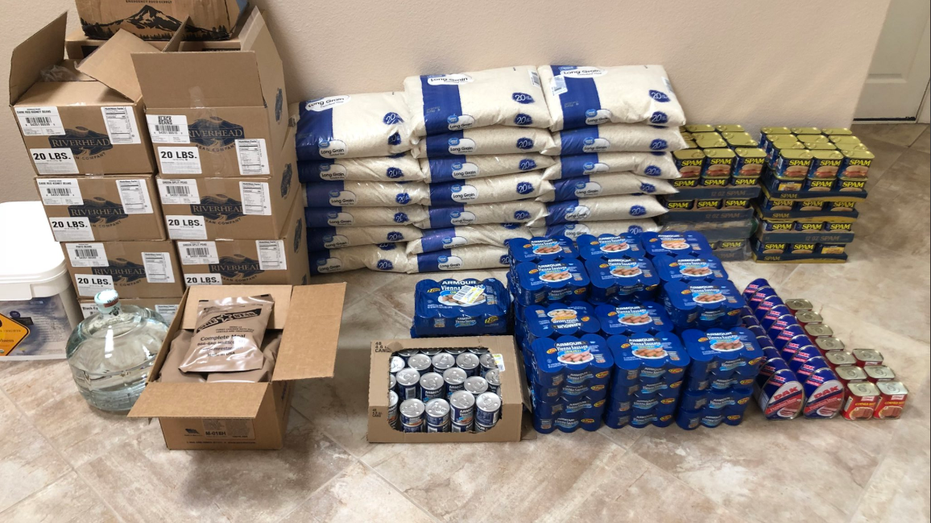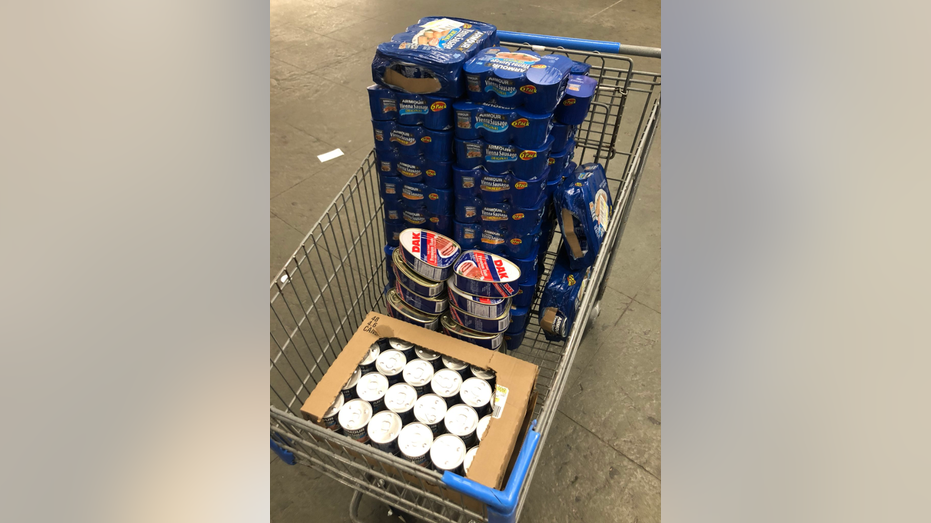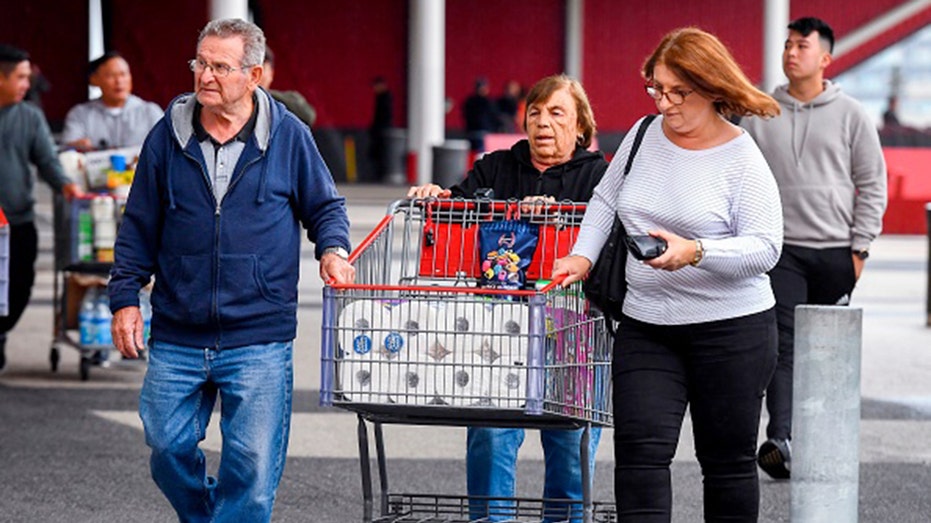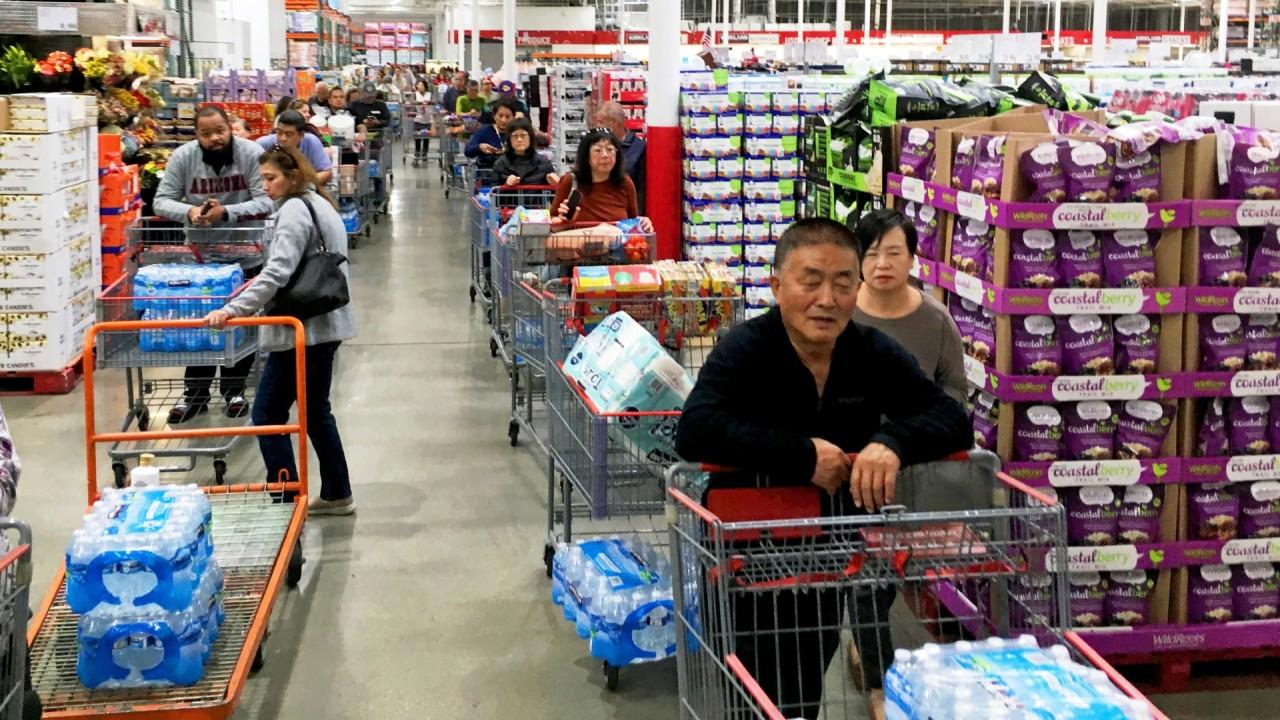Do's and don'ts of coronavirus stockpiling: 5 must-have items
These items are the basis for anyone prepping for emergencies
Texas resident and economic analyst Jesse Colombo is what you might call an extreme prepper: He's been stockpiling supplies since the 2008 financial crisis and estimates he has enough food to last several years.
Colombo shared five tips for the prepping neophyte with FOX Business since many shoppers are stocking up on food and toiletries as coronavirus spreads throughout the United States, and officials shut down down schools and businesses in response.
CORONAVIRUS OUTBREAK A PANDEMIC, WORLD HEALTH ORGANIZATION DECLARES
Houston resident Marina Vaamonde is one such neophyte. Vaamonde, who co-founded real estate investment company PropertyCashin, stockpiled six months' worth of groceries and other supplies when she first heard about the virus in early February.
Vaamonde was born in the former Soviet Union and remembers standing in line in the "freezing winter" for egg rations when she was 5 years old, she told FOX Business.

Texas-based prepper Jesse Colombo shows his latest haul of supplies before repackaging them to maximize how long they last. Credit: Jesse Colombo
"The thought of having to put my children through this, along with the possibility of getting infected, [is] overwhelming," she said.
Vaamonde's stockpiling choices largely lined up with Colombo's recommendations, which include a variety of food, a water purification device, battery-powered lights sources, medical supplies and miscellaneous items.
1. Don't just buy rice and beans
Health officials recommend a 14-day quarantine for those who have come in contact with the virus, and many people don't realize just how much food they need for that period of time, Colombo said.
Fresh fruits and vegetables are likely to spoil within two weeks, but canned and dry goods, especially if stored properly, can last for years.

"I cleaned Walmart out of Vienna sausages and got some strange looks," Texas-based prepper Jesse Colombo said. Credit: Jesse Colombo
Colombo started prepping with rice and beans and today has diversified to freeze-dried foods and canned meats.
"Spam and Vienna sausages last a very long time," Colombo said. "The idea is they last indefinitely, and there are very few other fat sources that have as long of a shelf life. ... You need fats in your diet."
2. Explore your options to ensure you have water
Vaamonde bought 50 gallons of water.
"The recommended amount of water is to put aside one gallon per person for three days," she said. "I decided to go ahead and get enough water for three weeks. Water doesn’t really go bad. If we don’t use it, we will finish it throughout the year."
NEW ROCHELLE CORONAVIRUS: WHAT YOU NEED TO KNOW
Colombo recommends the Berkey water filter, which will cost at least $250.
"They can filter thousands of gallons worth of water and last you years," he said.
3. Do think outside the socket
Preppers like to be prepared for anything, including loss of power. Colombo recommends buying a battery-powered lantern and solar-powered phone charger and mentioned other gadgets like hand-crank radios that can charge electronic devices. The items can be found on e-commerce sites like Amazon.
CLICK HERE TO READ MORE ON FOX BUSINESS
4. Don't just rely on the drug store for medical supplies
Vaamonde stocked up on adult and child bottles of over-the-counter pain meds, Claritin, Theraflu and vitamins.
Colombo recommends having a comprehensive First Aid kit as well, which can cost about $100.
"It has everything you need in it," Colombo said. "A lot of time kits are geared for campers, usually for more than one person with multiples of every essential item."

People leave a Costco warehouse with rolls of toilet paper amongst their groceries in Melbourne on March 5, 2020. (Photo by William WEST / AFP) (Photo by WILLIAM WEST/AFP via Getty Images)
5. Don't forget toilet paper and other supplies
Panicked shoppers emptying store shelves of toilet paper in Australia and Canada have made news as coronavirus continues to dominate headlines. Buying enough toilet paper, soap and feminine products to last your household a few weeks could provide peace of mind, but remember: major retailers like Kroger and Target are now limiting shoppers' purchases to ensure there's enough for everyone.
Colombo said he thinks of prepping as an "insurance policy."
GET FOX BUSINESS ON THE GO BY CLICKING HERE
"You don’t have to be preparing for any doomsday event. It’s a philosophy where you don’t trust the government to be there in a major emergency," Colombo said. "It's a philosophy of being self-reliant."




















